by staff | Feb 27, 2018 | Addiction, Drug Policy, News, Opioids

This past week the Center for Disease Control and Prevention (CDC) issued a statement warning people to stay away from Kratom while health officials investigate the possible connection between the plant and a nationwide outbreak of salmonella.
Multi-State Salmonella Outbreak
So far 11 people have been hospitalized as a result of this recent salmonella outbreak, and the CDC believes that kratom may actually be responsible for the recent chain of illnesses.
Since October, 28 cases of salmonella were recorded in 20 states, including:
- California
- Florida
- New York
- Ohio
- Massachusetts
- Michigan
- Alabama
- Arizona
- Colorado
- Louisiana
- Oklahoma
- Oregon
- North Dakota
- North Carolina
- South Carolina
- Kansas
- Kentucky
- Utah
- Tennessee
- Pennsylvania
So far there have been no deaths, but nearly a dozen people have ended up needing to be hospitalized.
Most people infected with salmonella develop symptoms with 12 to 72 hours of exposure to the bacteria. Some symptoms include:
- Diarrhea
- Fever
- Abdominal cramps
According to the advisory released by the CDC, 11 people affected by the salmonella outbreak were interviewed. Out of those 11 people, 8 of them admit to consuming kratom. That is a 73% connection so far. These individuals had taken the plant via:
Therefore, at this time kratom is the primary suspect in the CDC’s investigation. The advisory states:
“Epidemiologic evidence indicates that kratom is a likely source of this multistate outbreak. At this time, CDC recommends that people not consume kratom in any form because it could be contaminated with salmonella.”
But it wasn’t just the CDC. The very next day the Food and Drug Administration (FDA) issued a statement announcing the recall of “kratom-containing dietary supplements” manufactured and distributed by Divinity Products Distribution of Grain Valley, Missouri. This manufacturer is not yet determined to be the cause of the outbreak, but the company voluntarily recalled its kratom products and promised to stop selling them.
CDC, FDA, and DEA vs Kratom
At this time the FDA is encouraging other kratom companies to follow the Missouri company’s lead. They urge other manufacturers to- “take swift action to remove these products from circulation to protect the public.” The FDA Commissioner Scott Gottlieb states,
“To protect the public health, we’ll continue to affirm the risks associated with kratom, warn consumers against its use and take aggressive enforcement action against kratom-containing products.”
Proponents of kratom do argue that the FDA has been working especially hard in the last few years to prove that kratom is a threat to public health. In early February the FDA claimed it found evidence that certain compounds in kratom interact with the body’s opioid receptors. This led the agency to conclude that “compounds in kratom make it so it isn’t just a plant—it’s an opioid.” In America, the use of this plant is actually already banned in 6 states. The DEA also considers it a drug of concern. Even though back in October of 2016 the DEA announced they would not be banning kratom and giving it a schedule 1 label.
However, the American Kratom Association and other kratom advocates are willing to keep pushing back against the FDA. Many kratom users claim it is useful for helping addicts self-medicate to lessen the withdrawals when getting off heroin and other opioids. Yet, there is not enough research out there yet to fully endorse this claim, and a lot more would have to be done to legitimize it.
Either way, because kratom products are very loosely regulated by the FDA, it isn’t hard to understand why they are asking people to stop using the plant until they have been able to identify the source of the bacteria.
So far, no specific brands or suppliers have been singled out, but health officials are still urging people to be safe and avoid kratom products.
Many may still debate the benefits and the risks with kratom. Either way, both sides agree that more research is needed. Whether or not the drug should be banned is still a question that has yet to be answered. The one thing we do know is that kratom is a mind-altering substance, so using it might be detrimental to some people trying to recover from addiction. Right now, it doesn’t seem safe for anyone, anyway. If you or someone you love is struggling with substance abuse or addiction, please call toll-free now. We want to help.
CALL NOW 1-888-922-5398
by Justin Mckibben | Jan 25, 2018 | Acupuncture, Addiction Medicine, Addiction Treatment, Anxiety Disorder, Holistic Treatment

To put it simply, acupuncture is a form of alternative medicine in which thin needles are inserted into the body. This practice is a key component of traditional Chinese medicine, and the most widespread method of acupuncture in the United States derives from traditional Chinese medicine. Acupuncture therapy has been used to help heal and promote wellness for over 2,000 years.
Modern medicine explains the benefits of acupuncture using neuroscience. Traditional Chinese medicine focuses on the balance and flow of energy. Western practitioners tend to identify acupuncture points as places where stimulation to nerves, muscles, and connective tissue increases blood flow and activates the body’s natural endorphins. There are critics who say many studies on acupuncture are hard to prove because of the nature of the treatment versus control groups. Some would say any improvements may merely by placebo effects. However, many have experienced benefits from trying this method of treatment as part of personalized addiction recovery programs.
It is typical to use acupuncture for pain relief, although it can help with a wide range of other conditions as well. Generally, acupuncture is used in combination with other forms of treatment and has been known to be an effective addition to holistic addiction treatment. In 1997, the U.S. National Institute of Health (NIH) publicized acupuncture’s safety and efficacy for helping treat various conditions.
Relapse and Craving Prevention
One acupuncture technique applies small needles called “seeds” to the ear. A large study examining three auricular acupuncture protocols such as this looked at relapse prevention in drug users. This study concluded that all three protocols were associated with reductions in drug use over time.
In another study examining acupunctures impact on relapse prevention, an 8-week randomized study of 32 subjects compared two groups:
- One group was given acupuncture treatment with two prescription medications used for craving reduction
- The other received a placebo for cocaine addicts on methadone maintenance therapy
Half of the subjects in the test dropped out, so the results were not so concrete. However, almost 90% of those who completed the treatment achieved abstinence by the end of the study. The patients who completed the trial and achieved abstinence reported:
- Diminished craving
- Significantly improved mood
Over the years there have been hundreds of clinical studies on the benefits of acupuncture. According to the UC San Diego Center for Integrative Medicine, some studies claim that it can successfully help treat:
Although again, these treatments can often include medications and other forms of therapy.
Opiate Addiction and Acupuncture
The mesolimbic dopamine system originates in the ventral tegmental area (VTA) and projects to regions that include:
- Nucleus accumbens
- Prefrontal cortex
Expert believe these areas play a pivotal role in the development of opiate addiction.
Opioid abuse causes changes in the levels of dopamine in the brain. These reactions are typically associated with feelings of pleasure and well-being. This positive association helps drive the development of opiate abuse. So when someone discontinued opioid use, it reduces dopamine outflow in the nucleus accumbens. This is what creates opioid withdrawal.
Many studies in animals and humans have demonstrated that acupuncture causes multiple biological responses. The best-known mechanism is via endogenous opiates and their receptors.
In 1993, Han and Zhang reported the effectiveness of EA on morphine abstinence syndrome in a rat experimental model. The authors found that acupuncture point 100 Hz EA produced a statistically significant suppression of symptoms such as:
- Wet shakes
- Teeth chattering
- Escape attempts
- Weight loss
They also discovered acupuncture point 2 Hz EA produced a mild but significant suppression in:
- Escape attempts
- Wet shakes
These results suggest that 100 Hz EA was far more effective than 2 Hz EA in suppressing drug withdrawal syndrome. Further studies suggested that EA suppresses opiate withdrawal syndrome by activating κ opioid receptors and dynorphin release.
In short, there are researchers who believe that acupuncture is an effective method of therapy for helping treat those recovering from opioid addiction. Again, it may not be a good enough treatment on its own, but it can have an impact on cravings and other stressors in the body that help prevent relapse. So whether you believe in balancing the flow of energy in the body, or just pinpointing the nerves, acupuncture might be one way to enhance your recovery program.
Palm Healthcare Company offers acupuncture therapy as one of the many holistic treatment options to help each individual customize their own recovery plan. Acupuncture provides another opportunity to cultivate a state of physical and mental wellness in addiction recovery. Everyone struggling deserves a chance to be as healthy and happy as possible while overcoming drugs or alcohol. If you or someone you love is struggling, please call toll-free now.
CALL NOW 1-888-922-5398
by Justin Mckibben | Jan 9, 2018 | Addiction Stigma, Drug Abuse, Opioids, Prescription Drugs, Professionals, Stigma

(This content is being used for illustrative purposes only; any person depicted in the content is a model)
The opioid crisis has affected every community in America. Opioids affect rural working class people, those in the inner city and suburbs, or even the wealthy and well-to-do professionals. While drug abuse in business has been highlighted in blockbuster films like the Wolf of Wall Street, the current reality is not far from it. According to addiction experts, substance use disorder is making a sobering impact on the financial industry.
This comes from not just an upscale partying lifestyle, but also from drugs used to manage performance and stress, along with physical pain. According to addiction experts, the financial industry itself is actively turning a blind eye to the issues concerning opioid abuse on Wall Street because money is still the priority, and stigma still gets in the way.
Opioids on Wall Street: White-Collar Confessions
As it stands there is no comprehensive research that takes a detailed look at opioid abuse in Wall Street among finance professionals. So we can’t exactly show the numbers to prove it’s prevalence. However, what we see consistently is a dramatic increase in addiction and overdose rates all over the nation in recent years.
Luckily, professionals from this demographic are beginning to speak out in hopes of progressive change.
One such individual is Trey Laird, a former Wall Street trader, who recently spoke to CNBC about his six-year opioid addiction. During the conversation Laird reiterates the critical understanding that substance use disorder can reach anyone, saying:
“Addiction pervades every single socioeconomic demographic that there is. Every industry, every race, men, women. It doesn’t care who you are,”
After getting clean himself, Laird went on to open a sober living community and says he hopes to specifically serve the Wall Street and white collar demographic.
According to Laird, there has been more talk about opioid addiction among people in higher socioeconomic brackets, but there is still much work that needs to be done. He acknowledges that increasing awareness is doing a great deal, but that the problem is also at an increase. Wall Street may finally be talking about it, but how many professionals will get the help they truly need?
Opioids on Wall Street: Stocks and Stigma
One of the biggest obstacles facing white-collar workers like those in Wall Street is the engrained stigma still attached to addiction. Even with all the shifts in our culture toward a better understanding of substance use and the compassion for those struggling, professionals still have this seemingly unbearable hurdle in front of them.
Truthfully, stigma is something that prevents most people from getting help. Professionals will often be too afraid of losing their jobs to admit they need help. Many in the world of Wall Street and finance may have no information on how to seek out treatment while adhering to their professional boards’ guidelines and business practices.
With white-collar workers, this may be an especially difficult thing because the idea of addiction is so often attached to stereotypes of the unemployable, the homeless, the unreliable and unstable that their high-earning careers might minimize the impact drugs have on their lives. Wall Street stockbrokers and traders might not see themselves as having a problem as long as they can function, which brings in the idea of the “functioning addict.”
Opioids on Wall Street: Function Addiction is Still Addiction
Many white-collar workers who struggle with drugs or alcohol may consider themselves a “functioning addict”, meaning they are less likely see their actions as a problem because they are able to maintain their professional or even personal lives. To make matters worse, frequently the people around someone who is professionally successful will not believe the addiction is real. They may admit that you’ve been careless or destructive in some respects, but will ultimately minimize it due to your financial stability.
As long as you’re making money and paying the bills how could you possibly be “that bad?”
Well, because “functioning addiction” is still an addiction.
Addiction isn’t about whether or not you are able to hold down a steady income. It does not depend on whether or not other people recognize that you have a problem or your competence with your profession. While addiction can and will have an impact on these things, it isn’t always as black and white as most people like to pretend.
Notice how earlier we said you may “maintain” other areas of your life? Well, we mean to say that you can get by for a while, but eventually, the effects of addiction will catch up with you. It could be in the form of serious health consequences or other devastating circumstances. It could take days, months or even years, but it will leave a mark.
Sadly, “functioning addicts” are also far less likely to get the help they desperately need.
Opioids on Wall Street: It Could Be You
While you might be able to keep your addiction secret, in the beginning, things will eventually get worse. Eventually, your addiction will become unmanageable.
If you think you might fit the “functioning addiction” criteria, look at the following questions and answer them honestly.
- Do you often think about using drugs or drinking?
- Do you find it hard to stop after you start drinking or using?
- Are you scheduling your time around drinking or using drugs?
- Have you tried to stop before, but found that you were unable to?
- Do you drink or use drugs first thing in the morning?
- Are you drinking or using drugs at work?
- Do you hide your drug use or drinking?
- Have you done something risky, like driven drunk?
- Do you worry about your drug use or drinking?
If you find you are answering “yes” more than “no” then you should seriously consider speaking with a medical or addiction professional about your drug use or drinking.
The opioid crisis is nothing to be ignored. Despite all that we think we have learned about addiction too many professionals don’t get the help they need. No one is exempt from the destruction of addiction. Opioids don’t care what street you work on, Wall Street or not, they can ruin your life all the same. If you or someone you love is struggling, please call toll-free now. We want to help.
CALL NOW 1-888-922-5398
by Justin Mckibben | Jan 4, 2018 | Addiction Stigma, Donald Trump, Drug Abuse, Drug Policy, Law Enforcement, Marijuana, News
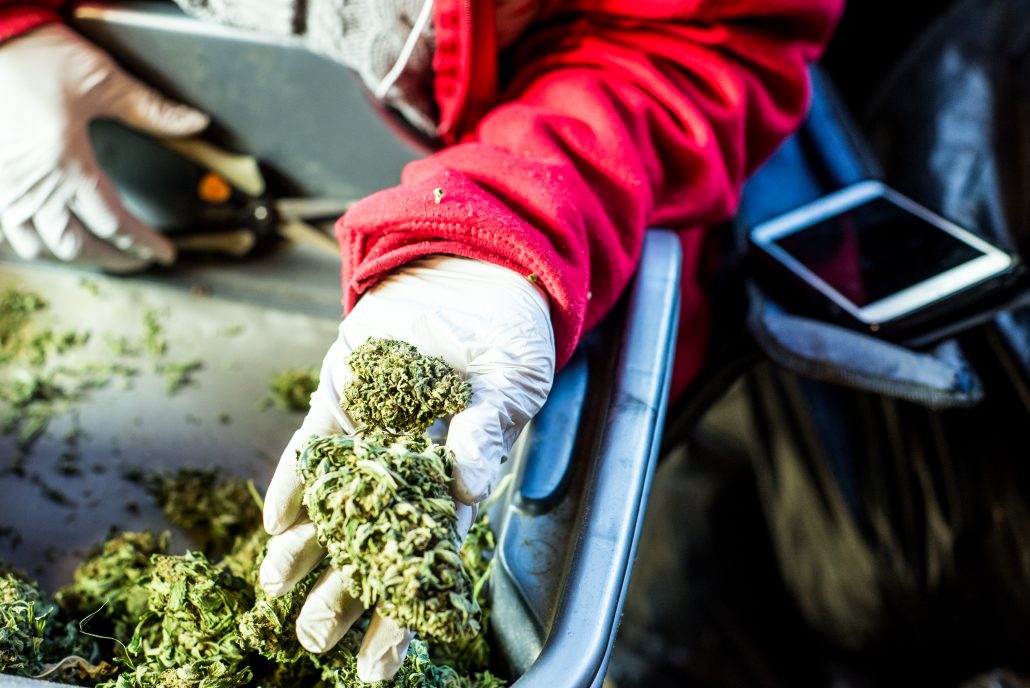
Before the hype around recreational use of marijuana in California could even begin to dwindle, new reports are stating that President Trump’s Attorney General Jeff Sessions is planning to begin a federal crackdown on marijuana laws.
Jeff Sessions is set to announce today that he is rescinding memos sent out from the Obama administration that established a policy of non-interference with state laws concerning marijuana use. For some time now there have been several stories highlighting Jeff Sessions’ disagreement with allowing states to decide their own laws concerning medical or recreational marijuana use. Some sources indicate he has been planning a new strategy that will actually bring federal law to a head against state marijuana policies.
UPDATE: According to The Washington Post, Jeff Sessions notes in a memo sent to U.S. attorneys that federal law prohibits the possession and sale of marijuana. Sessions undid four previous Obama administration memos that advised against bringing prosecutions in states where marijuana was legalized to use for recreational or medical purposes. Sessions said prosecutors should use their own discretion in weighing whether charges were appropriate.
So what does all this mean for marijuana states?
The Obama Era Policy
The memo essentially describing the Obama-era policy through the Justice Department is known as the “Cole Memo”. It was named after then-Deputy Attorney General Jim Cole in 2013.
The “Cole Memo” outlined new priorities for federal prosecutors in states legalized use of marijuana. These shifts in policy represented a major change from the strict enforcement approach of past administrations to an attitude of non-interference. Back in 2014 U.S. Congress approved legislation preventing the DEA from carrying out any raids, arrest, or prosecutions of patients using medical marijuana. Congress also blocked law enforcement agencies under the Justice Department from consuming federal dollars in efforts to enforce federal marijuana laws in states that have legalized the use of medicinal marijuana. Under President Barack Obama, the Department of Justice did not pursue action against states that legalized recreational marijuana use. In 2015 there was a bipartisan effort in Congress to block the DEA from using federal funding for aggressively pursuing marijuana in the states where it was legalized.
The Obama era outline essentially allowed states to decide whether or not to legalize marijuana and to what extent. The federal prosecutors would not intervene as long as the state regulations did not threaten other federal priorities. So the distribution of marijuana to minors and cartels was still prohibited.
So with this announcement, many are wondering if Jeff Sessions will be working to undo other changes as well.
The Jeff Sessions Reversal
At the time of writing this article, whether or not Jeff Sessions will offer up a new strategy for dealing with marijuana-friendly states or not has yet to be seen. At this time the great concern is how this announcement may end up putting state and federal law in conflict, and what to expect out of enforcement from the federal government.
But many say this is a frustrating development, especially considering that President Trump has said in the past that he would not allow his attorney general to change the current policy, telling a reporter that,
“I’m a states person. I think it should be up to the states, absolutely.”
If we go back to February of 2017, Sean Spicer suggested in a press conference that the Trump administration and the Justice Department already had the intentions to no longer turn a blind eye to states with their own legal marijuana laws. At the time Spicer said the Trump administration would be “taking action” against these states. Contradicting all the talk of states’ rights and rolling back federal enforcement.
Many are wondering if President Trump was consulted about this decision, or if he has been made aware of the implications of this change. Especially since it goes against his original campaign promise to leave marijuana laws to the states.
This move would lay the groundwork for the federal government to begin a crackdown on the rapidly increasing marijuana industry all across the country. If these reports are confirmed this afternoon with no new innovations in their place, this move could have a drastic impact on the economics around the marijuana industry.
Sessions Track Record
However, this should all come as no surprise, since Jeff Sessions has repeatedly spoken out against decriminalization of marijuana and a return to the failed tactics of the War on Drugs at every turn.
In fact, a key adviser on marijuana policy to Jeff Sessions, Dr. Robert DuPont, believes drug testing should be a routine part of primary-care medicine. He has gone as far to suggest that primary-care physicians should be given the power to force some patients into treatment against their will. DuPont also suggests the following treatment to subject individuals to monitoring and random drug tests for up to 5 years.
Dr. Robert DuPont was among a small group of drug-policy experts involved last month in a closed-door meeting with Sessions to discuss federal options for dealing with the rapid liberalization of state marijuana laws.
The Marijuana States
Eight states and the District of Columbia have laws allowing for personal consumption of marijuana for recreational purposes. 28 states and the District of Columbia have legalized marijuana for medical use. Even more states recently have begun to talk about changes in their own policies. California voters pushed through legislation to legalize recreational use back in November of 2017, and with the start of the New Year, those laws went into effect. Now, not even a week later, the fate of this state’s new policy is hanging in the balance.
Needless to say, marijuana advocates all over the nation are troubled by this news. According to NORML Political Director Justin Strekal,
“If the Trump administration goes through with a crackdown on states that have legalized marijuana, they will be taking billions of dollars away from regulated, state-sanctioned businesses and putting that money back into the hands of drug cartels,”
But some states are not ready to give up on their marijuana laws. Other Republicans, such as Colorado Senator Cory Gardner, are avidly speaking out in opposition to the recent decision by Jeff Sessions. Senator Gardner has vowed to prevent any new appointees for the Department of Justice from being confirmed until this reversal has been reversed.
Hopefully, when Jeff Sessions makes his official announcement, we will have some more clarity on how the federal government plans to address marijuana use going forward.
Marijuana Abuse
While the legal status of marijuana may soon be up for a serious debate, the fact remains that it is still possible to abuse marijuana. Whether a drug is legal or not, there are still risks. There are already plenty of legal drugs that cost thousands of lives every year. When substance use becomes habitual it can be extremely harmful to an individual who struggles with substance use disorder. Even though marijuana is not claiming lives like the opioid epidemic, for some it has adverse effects on the quality of life.
While marijuana is not considered to be as dangerous as other illicit drugs, such as heroin or methamphetamines, it can cause dependence for people who use the drug. The typical consensus that marijuana is not as physically destructive and addictive as other “harder” drugs doesn’t change the fact that psychiatrists also believe the psychological impacts of a substance do matter when talking about an addiction. These effects can be just as detrimental.
Marijuana addiction treatment offers a safe and secure environment while providing a variety of therapeutic opportunities to help develop a healthy lifestyle without relying on the use of marijuana or other drugs.
There still needs to be resources available to help people who suffer from abuse. Supporting addiction recovery means breaking the stigma and offering holistic and effective solutions. Palm Healthcare Company is here to help. If you or someone you love is struggling, please call toll-free now.
CALL NOW 1-888-922-5398
by Justin Mckibben | Jan 3, 2018 | Addiction, Addiction Treatment, Donald Trump, Drug Abuse, Drug Policy, Dual Diagnosis, Family, Fentanyl, Inpatient Treatment, Law Enforcement, Mental Health, News, PAARI, Prescription Drugs, Professionals, Recovery, Sobriety, Stigma, Synthetic Drugs
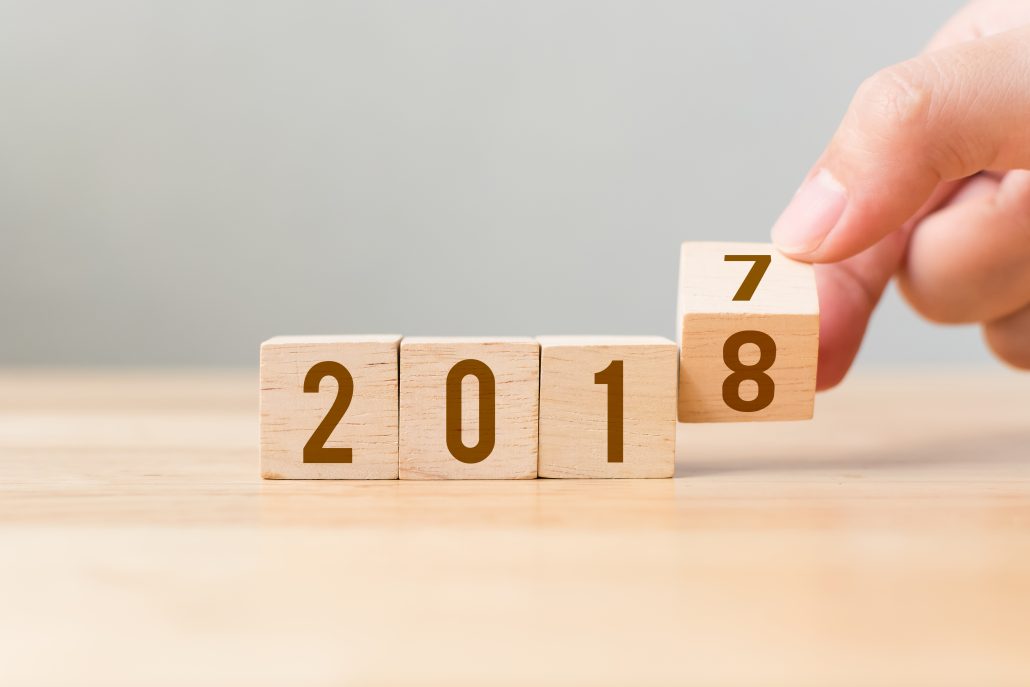
With the beginning of the new year, Palm Healthcare Company is looking forward to helping spread more exciting stories of experience, strength, and hope while also sharing important news stories and exciting new developments that relate to the world of addiction recovery and substance use disorder treatment. As we commit ourselves to another year of fighting alongside thousands of people working toward a better future, we would also like to take some time looking back on all the big moments in 2017 that we shared with our Palm Healthcare Company Blog.
-
President Trump Declares Public Health Emergency: What’s the Plan?
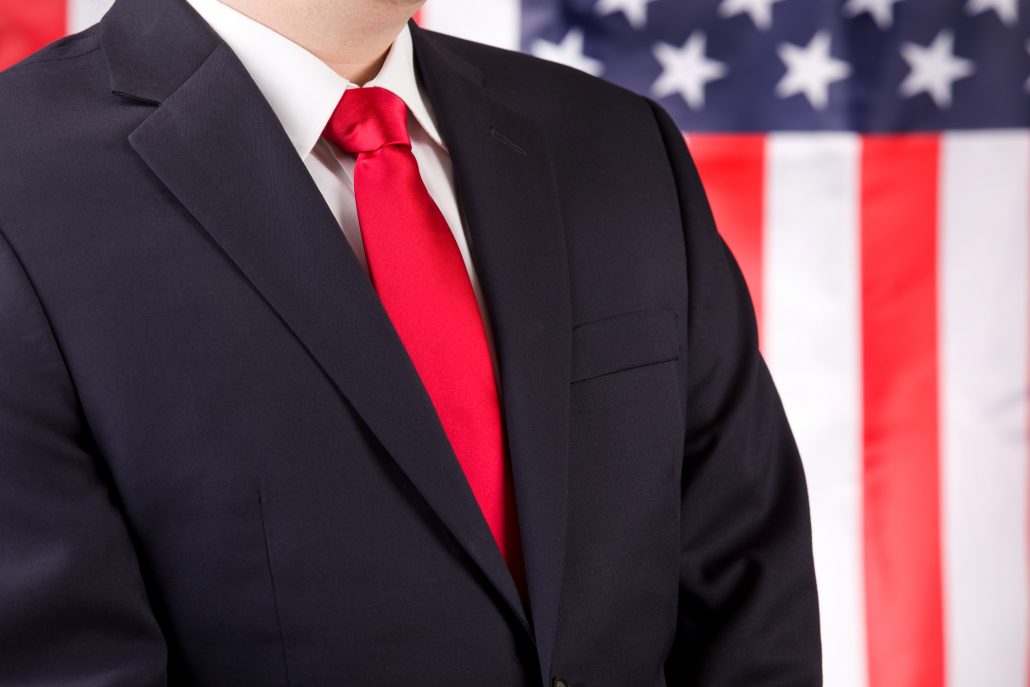
October of 2017, President Donald Trump made an announcement declaring the opioid crisis in America as a Public Health Emergency. This highly anticipated declaration was delivered in a way slightly different than many had expected, noting the technical differences between a Public Health Emergency and a National Emergency.
Many advocates were concerned that this announcement did not provide a concrete foundation for the necessary federal funding and did not initiate much-needed action, but others we assured that this means the Trump administration was taking this issue very seriously. In this article, we took a look at what this announcement did actually accomplish, and what it failed to deliver on.
-
Racketeering for Fentanyl: Opioid Maker Insys Founder Arrested for Bribes
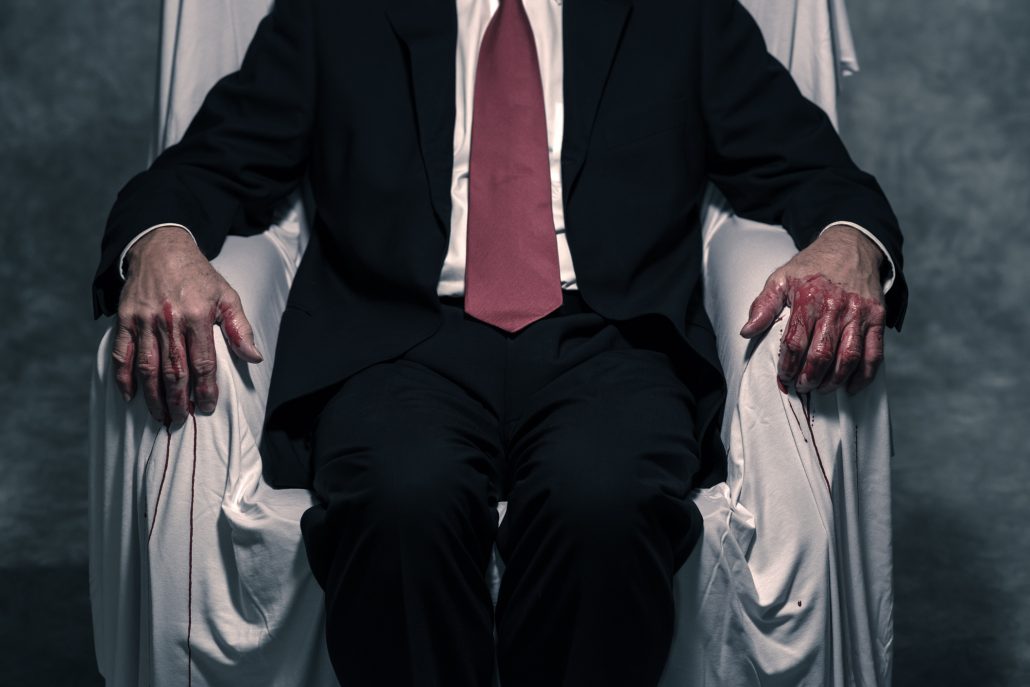
A huge development to another story came in late 2017 when John Kapoor, former CEO of Insys Therapeutics and founding father of one of the most prominent opioid manufacturers in the country, was arrested and charged with conspiring to push the signature drug of Insys Therapeutics, a Fentanyl spray called Subsys, for unacceptable uses through bribes and kickbacks.
The Palm Healthcare Company blog notes how back in 2016 the Justice Department reported to be charging 6 former executives and sales-managers of Insys Therapeutics for conspiring to defraud health insurers.
When looking at the details in this story, it has intensified the conversation about Big Pharma involvement in the epidemic
-
Can Kellyanne Conway Really Compete with the Opioid Crisis?

Not too long after President Trump’s declaration of a Public Health Emergency pertaining to the opioid crisis, Kellyanne Conway was announced as leading the charge on the White House’s efforts for addressing the opioid epidemic.
This Palm Healthcare Company blog saw a lot of comments!
While some find that having a high-profile figure at the head of the efforts gives validity to the White House’s commitment to solving the opioid issue in America, many others are speaking out in frustration. Those in opposition to this appointment say that while she may be useful as a counselor or pollster, she has no experience of expertise when it comes to drug abuse, addiction or substance use disorder treatment.
Thus far the one thing both Kellyanne and the President seem adamant about is a media campaign, but advocates are still afraid this is more “Just Say No” and not enough support for effective resources.
-
After Las Vegas Shooting: PTSD and Mental Health Must be Priority

In early October of 2016, the nation was shaken to its core when Las Vegas had one of the deadliest shootings in modern American history. This horrific tragedy flooded newsrooms and live viral footage with the country watching in shock as a gunman killed 58 people and injured 546 more at an outdoor music festival.
In the aftermath of this terrible and heartbreaking incident, our Palm Healthcare Company blog took a look at how such traumatic experiences impact people, and about the importance of those who struggle with Post-traumatic Stress Disorder (PTSD) getting proper diagnosis and care.
At a time when so many people are self-medicating with dangerous or even deadly narcotics, it is important to care for those most vulnerable, especially after such an earth-shattering experience.
-
Police Helping Addicts into Treatment is a Growing Trend Saving Lives

In August of 2017, we took a look back at several programs that had come to light all over the country based on Police Departments working with their communities to offer drug users the chance to get help with addiction treatment instead of being arrested and charged.
The pioneering program came from Gloucester Police Department in Massachusetts back in 2015. This program allowed users to ask police for help, and told addicts they could submit drugs to local law enforcement without fear of being arrested if they were willing to seek treatment. A 2016 study showed that this program was experiencing some impressive success.
Police departments in a number of other states were inspired by this and took up similar programs as a way to help their communities fight the addiction outbreak.
The Palm Healthcare Company blog took a close look at a handful of these programs to celebrate their compassion and success.
-
Sterilized for Cash: This Woman Pays Drug Addicts to Not Have Kids

Pregnant lady’s stomach and her hand holding dollar over black background
When we posted this Palm Healthcare Company blog we saw a great deal of debate in the comments on our Facebook. For over 20 years, Barbara Harris has driven across the country using cash to ask addicted women to give up their fertility. To date, the organization has paid over 7,000 people.
The controversy around such a powerful story had some people showing a great deal of support for someone giving addicted women an incentive to not get pregnant, while other people were appalled and angered that someone would entice desperate women who are not in the right mindset to make such dramatic and life-altering decisions with their bodies.
-
What Chester Bennington Taught Us about Addiction and Depression

(This content is being used for illustrative purposes only; any person depicted in the content is a model)
In July of 2017, the world lost a great artist and inspirational musician with the death of Chester Bennington, the lead singer of the band Linkin Park.
Initial reports were that Bennington had died from suicide by hanging, with later reports indicating that Chester had been drinking at the time of his death. The vocalist had been open about his struggles with depression and drug addiction over the years, and in this article, we took a look at just how much Chester Bennington could teach us about the devastation of depression and addiction.
-
Dear Media, Thank You for Bad Press

South Florida has been under a great deal of scrutiny recently, specifically concerning the issues facing the recovery community such as unethical and illegitimate sober home operators in the area. In June, there was a Megyn Kelly NBC News Investigation which focused in on Delray Beach, Florida and some of the big problems concerning unscrupulous activities from corrupt individuals exploiting drug addicts in need of help.
We took this time to look over some of the bigger stories concerning the illicit activities in South Florida with the recovery industry while showing support and gratitude for all those working together to try and put an end to operators who are taking advantage of people in need of help.
-
Palm Healthcare Measures Up to Addiction Treatment Outline for EAP
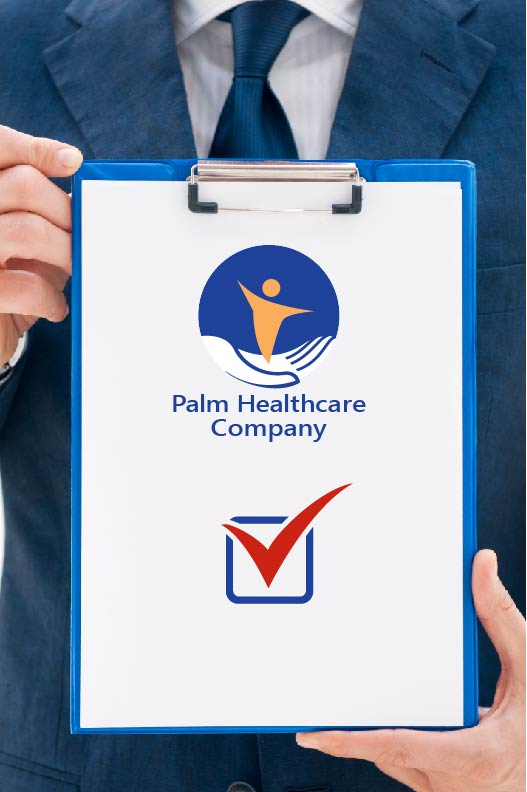
In September of 2017, we took a very close look at an article written by the Journal of Employee Assistance that was designed to help Employee Assistance Programs (EAPs) find the right kind of addiction treatment programs to recommend to their clients.
The outline given for EAPs to find effective and reliable addiction treatment options gives a list of things to look for. The Palm Healthcare Company blog was happy to show off just how all of our facilities measure up to these crucial standards.
Keep an Eye Out for More
Palm Healthcare Company continues to try and share every treatment development, news story or exciting innovation on our blog to not only help more people learn and raise awareness but to offer some perspective and maybe ask some new questions.
Whether it is sports, celebrities, news or politics we are committed to talking about important stories that pertain to drug policy in America, substance use disorder, mental health, and personal wellness. We will continue to touch on the top stories of 2018 to spread the word and hopefully inspire more people to get involved in these crucial conversations.
2017 was an intense, innovative and inspiring year. Here is to hope for 2018.
Holistic addiction treatment means incorporating every aspect of life for each individual with personalized opportunities for lasting recovery. So every bit of information can help anyone make a more comprehensive decision about what kind of recovery plan they want. If you or someone you love is struggling, please call toll-free now.
CALL NOW 1-888-922-5398
by staff | Dec 15, 2017 | Addiction, Christmas, Family, Holiday, Recovery, Sobriety
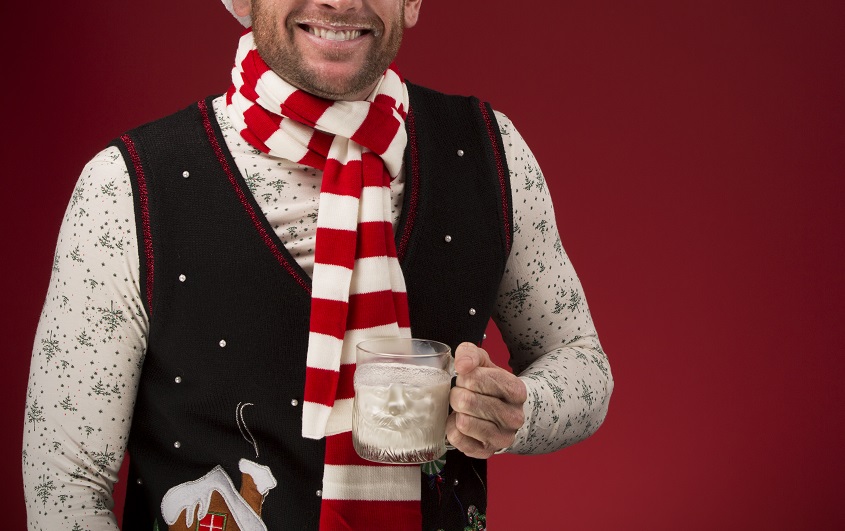
(This content is being used for illustrative purposes only; any person depicted in the content is a model)
In the spirit of the holiday season, we figure it is about time to not only celebrate love, giving and connection but also a time to celebrate the journey into sobriety many amazing people are on all around the world. As we reach the end of another interesting and exciting year, full of bittersweet memories as well as joy and hope, we thought it would be nice to give a sobering spin on one of the Christmas classics; the 12 days of Christmas. But honoring the legacy of 12 Step fellowships that have been such a life-changing foundation for many people recovering from drugs or alcohol.
We know that the holidays can also be a difficult time for those who may be separated from their loved ones for the season. They can certainly be a difficult time for those who are still struggling or who have loved ones suffering. So we want to spread a little bit of hope along with holiday cheer.
So for the days leading us to Christmas, we look forward to presenting all of our incredible followers and friends with our very own version of the 12 Steps of Christmas.
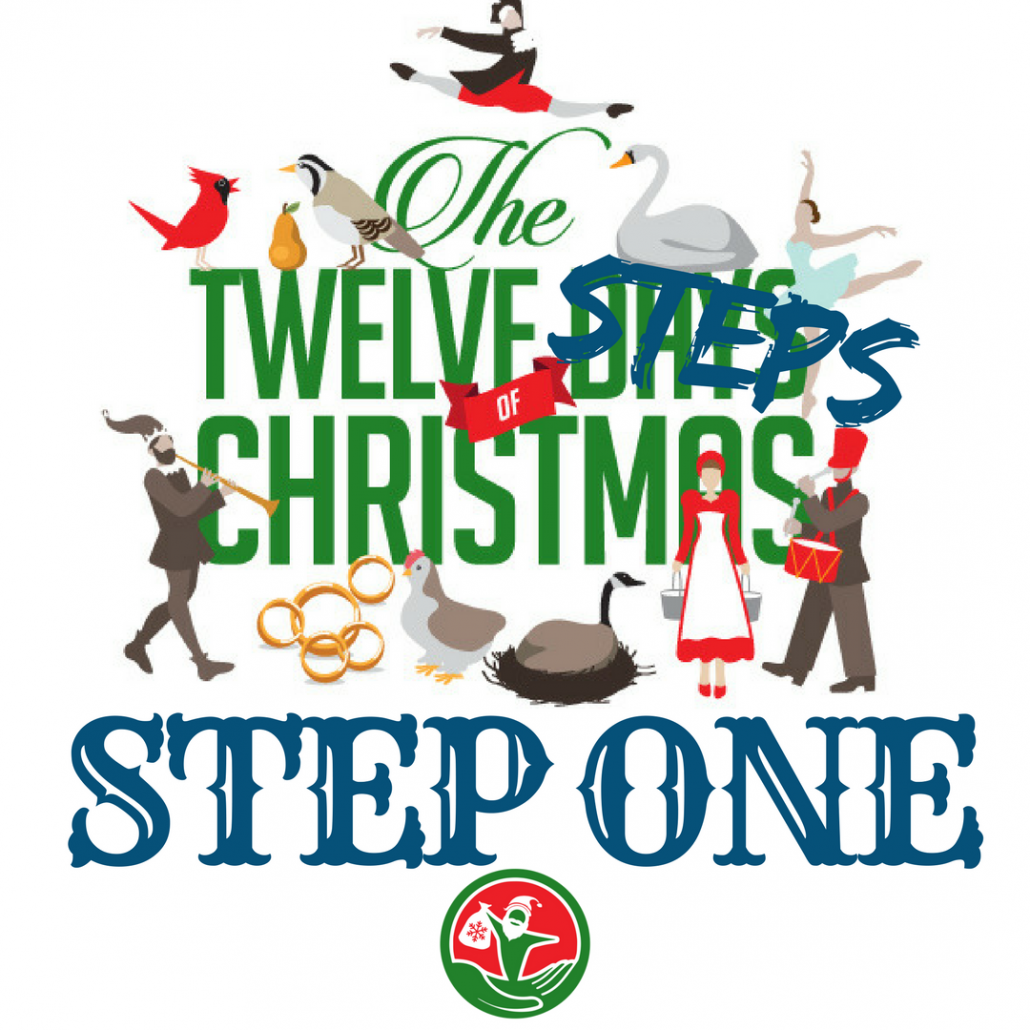 Step 1: Admitting that I am powerless over the Holidays and they can make my life unmanageable
Step 1: Admitting that I am powerless over the Holidays and they can make my life unmanageable
Forget the partridge in the pear-tree for the first day… let’s start off slow.
The fact is, the holidays will come around whether we are ready for them or not. I’m still trying to figure out how I survived the turkey and stuffing from November. Then BOOM here comes Christmas, with the gift giving and the family time and all that fun stuff. With all the tinsel and toys (yes, I still ask Santa for Batman action figures for Christmas) there comes a lot of stress and temptations for some people in sobriety.
Remembering Christmas with drinking…
Sometimes they want to join in “merriment” is pretty tempting. I know personally, the temptation to drink during Christmas was pretty much the same as every other 24 hours in early recovery; a lot. Lucky me, I got to spend my first sober Christmas in a holistic addiction treatment program. NICE! In all seriousness, it probably did save my life.
But I can remember the days when I used to drink with my loved ones on Christmas. After getting through the presents and coming together in the afternoon to spend time together, we would have food and drink together. The only problem, maaaaaybe some of us (ME) drank a little too much of the eggnog.
Whether or not you are a fan of “eggnog”, which in some families (or maybe just my family) tends to have a hearty serving of whiskey in the mix, there can be plenty of things about the holiday season that are tough to tussle with, especially in early sobriety.
Powerless over family…
We have to remember that our families are out of our control. All that dysfunction and colorful history with all the characters you call relatives can be, to put it mildly, exhausting and stressful. Sometimes our family members want to remind us of all the time we spent last year nodding out at Christmas dinner…
…or the time we threw up on the snowman in the backyard…
…or the time we sold all the presents under the tree and disappeared for a week…
…No? Just me?
Anyway, the truth is that when aunts, uncles, cousins, and siblings all come together with the parents and grandparents and so on, reminiscing is just part of the package. Maybe for some (me, apparently), it is more painful than others. Or perhaps, maybe you still have that family member that is struggling. Perhaps they are the ones disappearing for days, drinking too much cider or even causing conflict due to their distressed state in active addiction. It can be incredibly disheartening.
Either way, it is important to remember that we are not in control of our loved ones. Early recovery for a lot of us is about learning acceptance and working through the adversities we face with humility. Family support in the recovery process is more important than most people realize.
Plus, an abundance of Christmas cookies can go a long way.
Working with that unmanageability…
The most important part of any holiday, especially this time of year, is the compassion and goodwill toward others this season is meant to inspire in us. As troubling as life can be, our efforts to share love and connection are the best way to work through that obstinacy.
No matter how unmanageable the family get-together can be, in recovery, we have to try and remind ourselves that all we are responsible for is giving as much love, compassion, and acceptance as we can, while still maintaining healthy boundaries.
So step 1 for the 12 Steps of Christmas is essentially trying to remember not to stress the small stuff, and to accept yourself and your loved ones.
As for the partridge… is that even a thing? Who has a spare pear tree these days anyway?
Spending Christmas facing the hurdles and hardships of addiction can be a daunting task, but take this opportunity to be more aware of what truly matters and what that means for your recovery. For those struggling this holiday season, ask for help; not just for your family but, for yourself. Give yourself and those who love you the most the best gift you can. If you or a loved one is struggling with substance abuse or addiction, please call toll-free now.
CALL NOW 1-888-922-5398















 Step 1: Admitting that I am powerless over the Holidays and they can make my life unmanageable
Step 1: Admitting that I am powerless over the Holidays and they can make my life unmanageable
